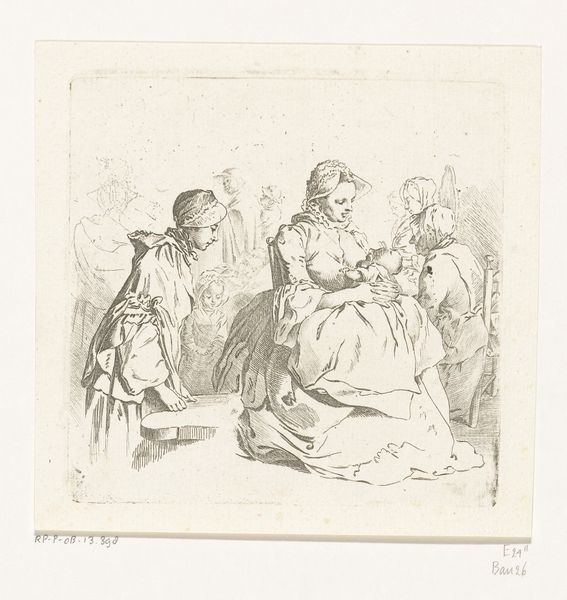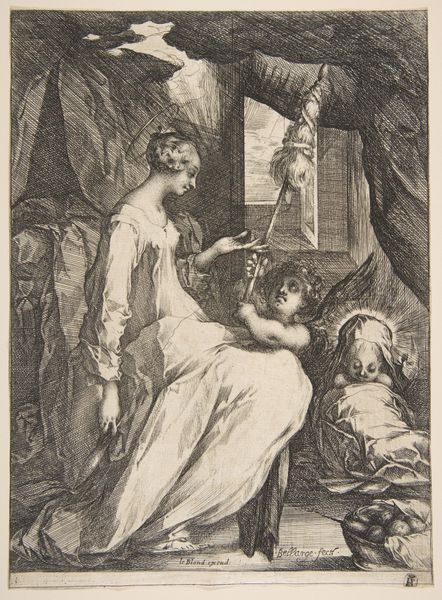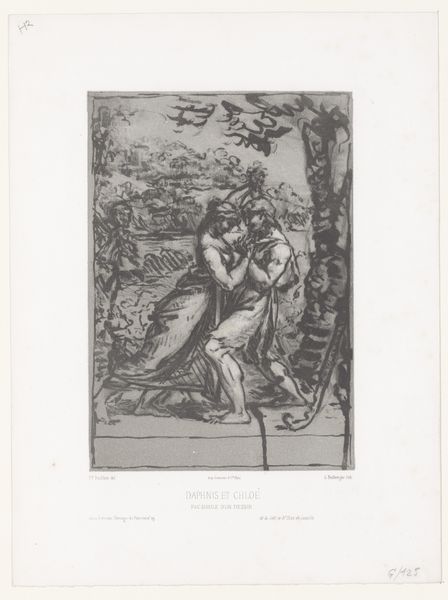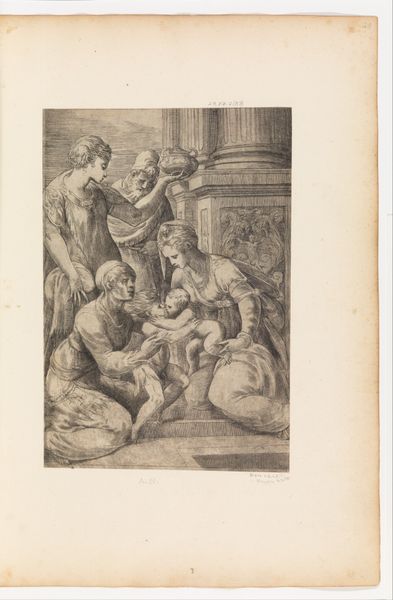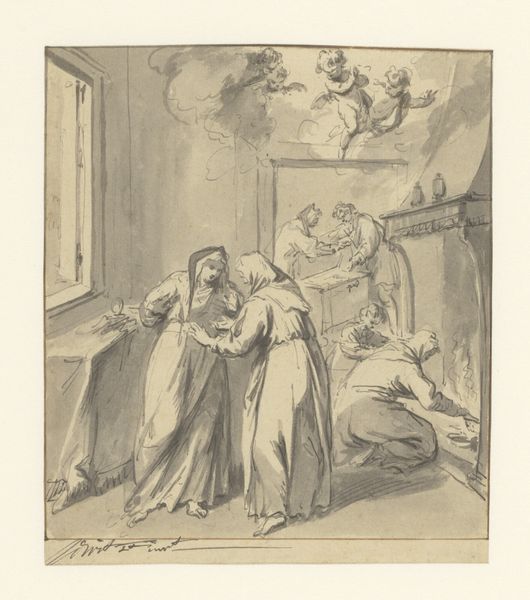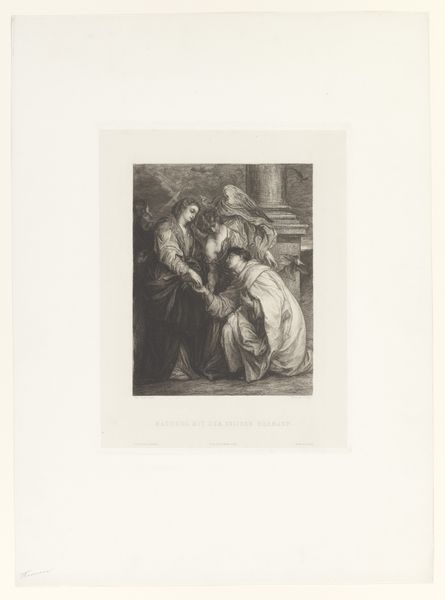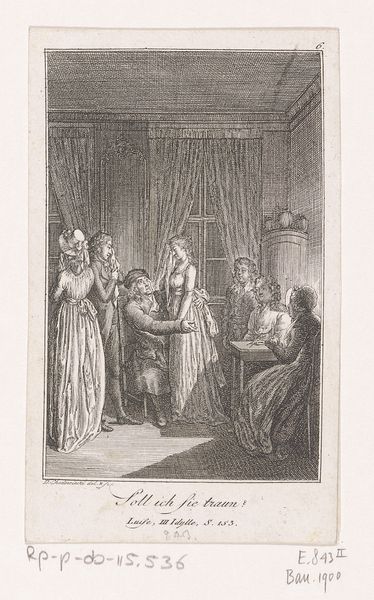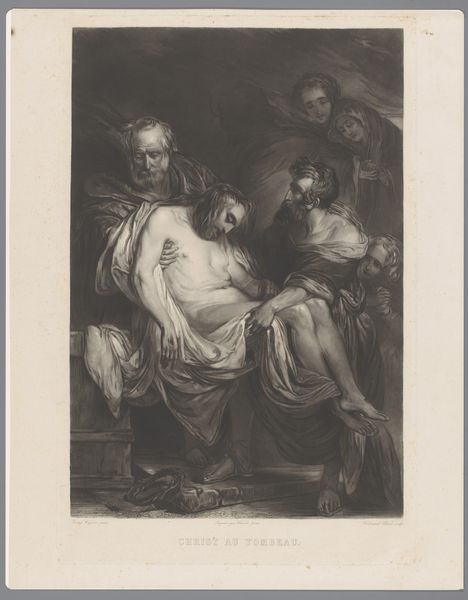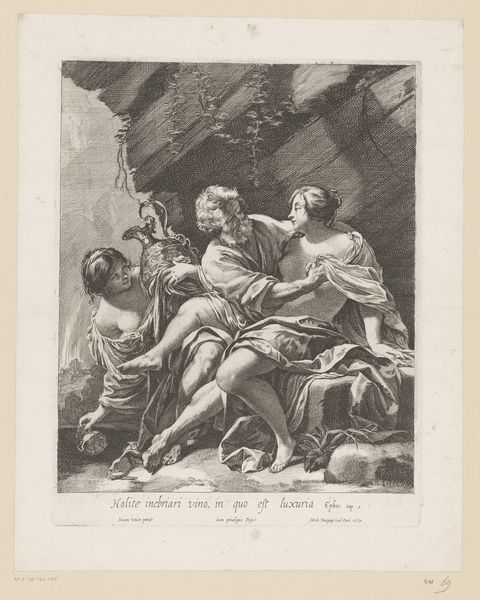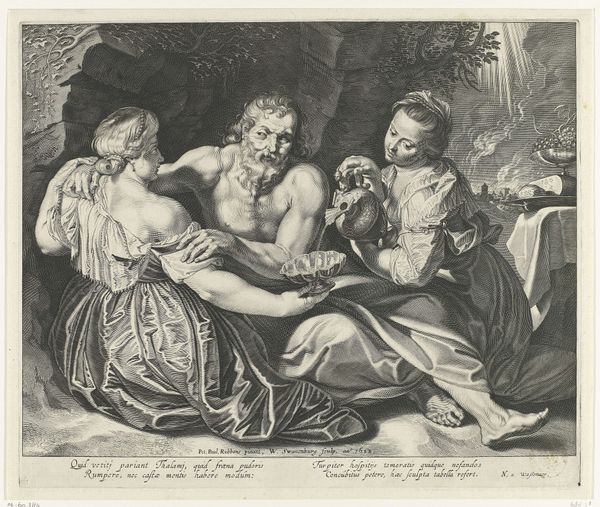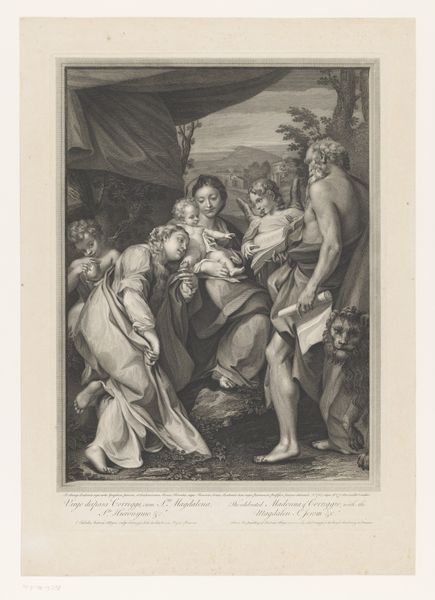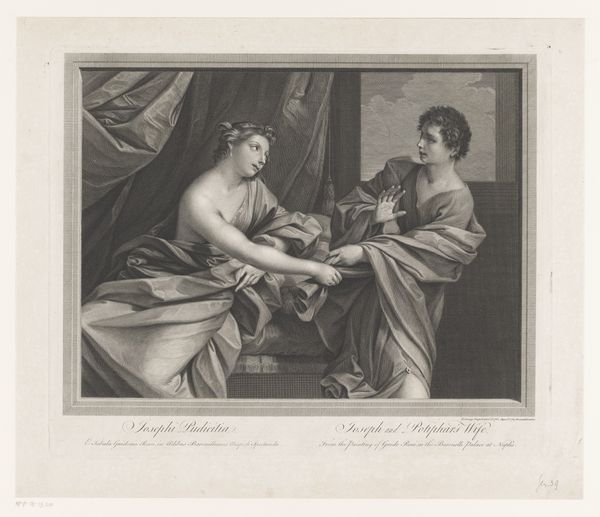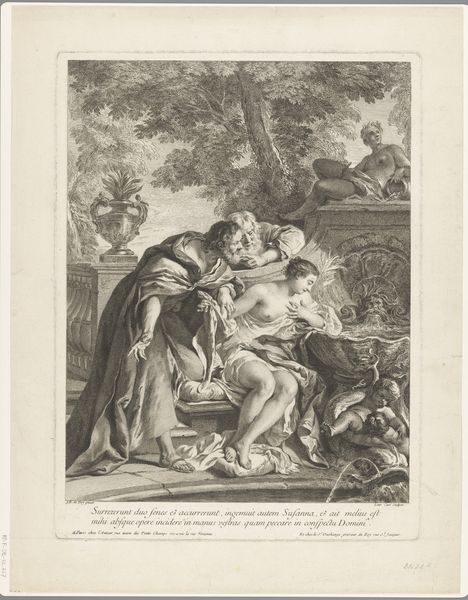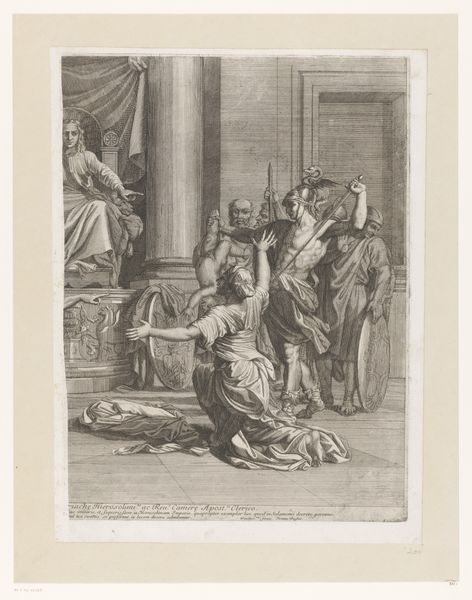
engraving
#
baroque
#
old engraving style
#
classical-realism
#
figuration
#
history-painting
#
engraving
Dimensions: height 297 mm, width 203 mm
Copyright: Rijks Museum: Open Domain
Editor: This engraving is called "Thetis en Vulcanus," created between 1614 and 1657 by Pierre Daret. It's currently housed in the Rijksmuseum. I find the composition quite striking; the figures of Thetis and Vulcan seem frozen, almost staged, against the backdrop of the forge. What strikes you about this piece? Curator: The work presents an interesting interplay of lines and volumes. Observe how the artist uses the contrast of light and shadow to define the musculature of Vulcan and the drapery of Thetis. The strong diagonal formed by Vulcan’s arm holding the hammer creates a dynamic tension, countered by the verticality of Thetis. What do you make of that balance, or perhaps imbalance? Editor: I see that! The dynamic action on the left is balanced, maybe a little overpowered, by the stillness of Thetis. Does that emphasis suggest anything about the artist’s perspective or message? Curator: Perhaps. The stillness you noted could also highlight the perfection, the almost ethereal quality that's been associated with idealised female forms. Think of Thetis less as an active agent and more as a study in form, an embodiment of classical ideals represented through line and contour. Also, note how her stillness, when contrasted with the motion of the forge, draws attention to the materiality of the figures. Editor: That's a very interesting point. I hadn’t considered how the stillness interacts with the textural elements. Curator: Indeed. Consider how the linear details create volume, shaping the scene and inviting deeper considerations of form. The entire visual construction, meticulously crafted, offers an abundance of material for contemplation. Editor: Thank you. I'm going to look at engravings in a new light now. Curator: And hopefully recognise how even narratives lend themselves to visual interpretation.
Comments
No comments
Be the first to comment and join the conversation on the ultimate creative platform.
